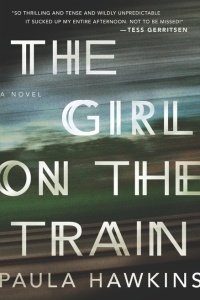For last year’s words belong to last year’s language
And next year’s words await another voice.
And to make an end is to make a beginning.
T.S. Eliot, “Little Gidding”
Movie studios save the best for last, releasing potential award winners at the end of the year. An article in Psychology Today on behavioral decision-making explores this phenomenon:
Either movie executives know to release their “Oscar bait” films at the end of the year, or that those in charge of nominating films for awards tend to pick films that were released in the last few months of the year. Either way, movies that opened later in the year are overrepresented.
Book publishers, on the other hand, release very few books in December. Magazines and newspapers focus on year-end lists of top books, not reviews of new books. Holiday shoppers are looking for gift books they’ve heard about, not brand-new books by unknown authors. Booksellers can’t learn about new books during the Christmas rush. And no one has any time to read — they’re at the movies.
After New Year’s Day, bookstore shelves and tables will be stocked with shiny new hardcovers and paperbacks. Spend that gift card you just received on yourself — and even though all the diet books come out in January, don’t buy The Paleovedic Diet or The 17-Day Green Tea Diet. Buy yourself a book that will entertain, absorb, and enlighten you, and curl up with a cup of tea, green or not.
New in hardcover:
 The Guest Room by Chris Bohjalian (1/5)
The Guest Room by Chris Bohjalian (1/5)
I’m adding this to my list of books that made me cringe, but that I couldn’t put down. Does that make sense? As always, Chris Bohjalian knows how to tell a story. In his latest novel, he sheds light on white slavery and prostitution. Think of the movie Taken — but imagine those horrific events taking place in the United States, with the involvement of upper-middle class suburbanites.
 The Sound of Gravel by Ruth Wariner (1/5)
The Sound of Gravel by Ruth Wariner (1/5)
Wow! I read this memoir about growing up in a polygamist Mormon doomsday cult in one day. The author is her mother’s fourth child and her father’s 39th. If you liked The Glass Castle, The Sound of Gravel is for you.
The Expatriates by Janice Y.K. Lee (1/12)
I dislike the term “women’s fiction” — but when you have a novel about three women, all expatriates in Hong Kong, who are grappling with their roles as mothers/caretakers and daughters, that’s what it is. But it’s women’s fiction at its very best — tautly written, with well-developed characters and a surprising storyline.
 My Name is Lucy Barton by Elizabeth Strout (1/12)
My Name is Lucy Barton by Elizabeth Strout (1/12)
Pulitzer Prize winner Elizabeth Strout (Olive Kitteridge) is one of my favorite authors. Her new book tells the story of Lucy Barton, a young woman from an abusive and impoverished background who (perhaps, she suggests, because she is “ruthless”) becomes a functioning adult and successful writer. The book, like Kent Haruf’s Our Souls at Night, is very short, with no wasted words; it’s a novel that raises many questions and that I won’t soon forget.
 The Swans of Fifth Avenue by Melanie Benjamin (1/26)
The Swans of Fifth Avenue by Melanie Benjamin (1/26)
The surprise in this delightful book is not that Melanie Benjamin paints a complete portrait of Truman Capote, which I expected, but that she brings Babe Paley to life as a lonely and wounded woman. I’ve read and enjoyed all of Benjamin’s biographical novels — The Swans of Fifth Avenue is my favorite.
The Road to Little Dribbling : More Notes from a Small Island by Bill Bryson (1/19)
Some of Bryson’s books are funnier than others, but they’re all amusing, informative, and worth reading. His latest is a follow-up to Notes from a Small Island, a view of Britain from an American expatriate’s perspective, which came out 20 years ago.
New in paperback:
 Inside the O’Briens by Lisa Genova (1/5)
Inside the O’Briens by Lisa Genova (1/5)
This could be Lisa Genova’s best novel yet. The story of a loving family in crisis, Inside the O’Briens focuses on Joe O’Brien, a tough Boston cop who is devastated when he learns that he is suffering from Huntington’s disease — and that his four children may have inherited the lethal gene from him.
The Daylight Marriage by Heidi Pitlor (1/5)
I couldn’t stop reading The Daylight Marriage — spent a Sunday reading it, with the New York Times remaining in its plastic wrapper until I finished. This novel about a broken marriage, one which was perhaps ill-fated from the beginning, is devastating. Think Gone Girl with real people you might know instead of psychopaths.
 The Secret Wisdom of the Earth by Christopher Scotton (1/5)
The Secret Wisdom of the Earth by Christopher Scotton (1/5)
Readers of this blog are probably tired of hearing me rhapsodize about Scotton’s debut novel, one of my 2015 favorites. I’m thrilled that it’s out in paperback and will reach more readers.
Leaving Before the Rains Come by Alexandra Fuller (1/12)
Fuller’s eventful life continues to provide her with interesting and thought-provoking subject matter. In her latest memoir, the dissolution of her marriage causes her to face her past from a new vantage point.
Books on the Table wishes you a happy, healthy, and book-filled 2016!









